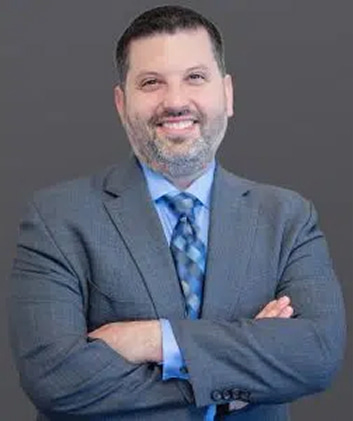Summary:
A Florida living will must be accessible to be effective. Boca Raton residents should store it safely with their attorney, share it with doctors, and consider uploading it to local hospital portals or digital registries. Keeping it private but reachable ensures your wishes are honored without delay.

A well-drafted living will only protects you if it’s accessible. In medical emergencies, your family and doctors must know where it is and how to get to it quickly.
Families create valid living wills, but sometimes store them in places that delay care. That defeats the very purpose of having one. Here’s how to ensure your living will is stored, registered, and ready when and where it’s needed most.
Why Proper Storage Of A Living Will Matters
Florida law (Chapter 765) allows competent adults to create a living will stating their preferences for end-of-life care. But the law doesn’t help much if your document is lost in a drawer.
Common Storage Mistakes
One major mistake is locking the only copy of your living will in a home safe without sharing the key or code. It’s also risky to store it in a safety deposit box that no one else can access quickly.
Another frequent error is failing to give your doctor or hospital a copy, or simply telling your family the document exists without ever providing it. Inaccessibility defeats the purpose entirely.
The Result
Even though your wishes are legally binding, healthcare providers may default to a different treatment because they can’t confirm your instructions.
In Boca Raton, timing and access determine whether your living will is honored in times of need.
Places To Store Your Living Will In Florida
You need a storage strategy that balances privacy, security, and accessibility.
With Your Estate Planning Attorney
Most Florida estate attorneys, including those in Boca Raton, keep signed originals in fireproof storage or secure archives.
Pros:
• Legally protected environment.
• Accessible to family upon proof of death or incapacity.
• Safeguards against tampering or loss.
Tips:
• Ask if your attorney offers digital backups or registration services.
• Provide your surrogate with the firm’s contact info.
In A Fireproof Safe At Home
Home safes are convenient, but only if trusted people can reach them.
Do:
• Share the code or spare key with your health care surrogate or spouse.
• Keep a clearly labeled folder: “Health Directives – Living Will.”
Don’t:
• Assume EMS or hospital staff will search your home for documents.
• Use this as your only copy.
With Your Health Care Surrogate
Your surrogate is legally authorized to make medical decisions on your behalf, so they must have access to your living will.
Tips:
• Give your surrogate a physical copy AND a digital version.
• Walk through the language so they understand your wishes.
The person you trust most needs your confidence and paperwork.
Registering With Florida Medical Providers
Hospitals in Palm Beach County are increasingly digital, and many allow you to upload advance directives to their patient portals.
Hospitals That Accept Advance Directives
- Boca Raton Regional Hospital (Baptist Health): Patient access via MyChart.
- Delray Medical Center: Submit through pre-registration or patient services.
- West Boca Medical Center: Bring a copy during check-in or scheduled procedures.
How To Register
Call your hospital’s records or patient services department. Ask if they retain advance directives permanently or per admission. Upload or hand-deliver your signed copy.
Best Practice
Always confirm that your doctor and hospital have received your living will, and keep a dated record of that delivery. This ensures your wishes are available when urgently needed.
When you update or revise your living will, be sure to provide a fresh copy to each provider. Replacing outdated versions avoids confusion and ensures your current preferences are followed without delay.
Digital registration bridges the gap between legal planning and emergency care.
Using National & Digital Living Will Registries
Several services offer centralized digital storage for your living will and other health documents. These may be helpful if you travel frequently or live part-time outside Boca Raton.
Options Include
- U.S. Living Will Registry.
- DocuBank.
- MyDirectives – free cloud-based advanced directive storage.
Benefits
- 24/7 access for healthcare providers via secure code or wallet card.
- Optional email alerts to loved ones when accessed.
- Often integrates with hospital networks nationwide.
Cautions
- Verify security protocols and HIPAA compliance.
- Keep login info in your estate plan binder or wallet.
Registries aren’t mandatory in Florida, but they are a powerful backup if local documents are inaccessible.
Finding Your Living Will In An Emergency
Even if you’ve done everything right, critical moments often bring chaos. Take extra steps to simplify access for those helping you.
Simple Visibility Tips
Including a wallet card or emergency contact sheet that reads, “I have a living will on file with [attorney, hospital, or registry].” It helps first responders and medical staff locate your instructions quickly.
Add a medical ID entry to your smartphone. Most emergency personnel check phones for this information, and listing your advance directive there ensures your health care wishes are more likely to be honored.
Tell trusted friends or neighbors where your documents are stored, especially if you live alone. You can also use a clearly labeled emergency folder on your refrigerator, an EMS-friendly location they’re trained to check.
Many Boca Raton first responders look for advance directives near medication lists or refrigerator postings. The best living will is one your care team can find fast.
What To Do Or Not To Do With Your Living Will
Creating a living will is just the first step; how you handle it matters. Simple but critical missteps, like poor storage or lack of communication, can completely undermine your planning efforts.
The Don’ts
Avoid locking your only copy of the living will in a safe or deposit box without giving someone else access. Don’t assume your spouse or child will know your wishes without documentation.
Keep your living will separate from unrelated legal papers so it’s easy to find in an emergency. Letting the document expire, or worse, forgetting it exists, can undo all your planning.
The Dos
Make and store multiple copies of your living will in different accessible locations. Clearly tell your chosen surrogate where each copy is stored so they’re never left guessing.
After every update or revision, check that your new version has replaced older copies wherever they’ve been filed or stored.
Storage strategy isn’t just about keeping your living will safe, it’s about making sure it’s available when needed. Quick access ensures your wishes are honored without delay, confusion, or conflict.
What To Do After You Update Your Living Will
Every time you revise your living will, you need to replace all copies with the newest version. This is especially convenient with your healthcare providers and surrogate.
Steps To Take After Updating
- Destroy old versions or mark them “revoked.”
- Provide the new version to your attorney, surrogate, and family.
- Resubmit to your hospital’s patient records department.
- Re-upload it to any digital registry or portal you’ve used.
- Update your wallet card or phone notes if they reference an outdated date.
Why It Matters
Conflicting versions of your living will can cause delay, legal confusion, or even override your current preferences. A living will is only effective if everyone is working from the same playbook.
How To Store With Other Estate Documents
Your living will should be stored alongside other critical estate planning tools, but each may have different sharing requirements.
Documents To Store Together
- Living will.
- Health care surrogate designation.
- HIPAA authorization.
- Durable power of attorney.
- Will and/or trust.
- Funeral or organ donation instructions.
Tips For Organization
- Use color-coded folders or labeled dividers.
- Maintain both physical and digital backups.
- Give a full packet to your primary surrogate and a trusted backup person.
In Boca Raton, complete planning means your family won’t have to search or guess during a medical emergency.
Questions About Storing Florida Living Wills
Even with a completed living will, there are always questions about access and security. These answers help ensure your document is available when it’s needed most in Florida.
Is It Safe To Keep My Living Will In My Wallet?
Not the full document. Carry a wallet card stating that you have a living will and where it can be found.
Can I Upload My Living Will To A Hospital Before Admission?
Yes. Many South Florida hospitals now accept advance directives through their digital portals. Call ahead for instructions.
Do I Need To Register My Living Will With The State Of Florida?
No. Florida does not maintain a state-run registry. Registration is optional and typically done through hospitals or private services.
Can I Email My Living Will To My Doctor?
Yes, but make sure it’s sent securely. Ask your provider about their preferred method: fax, portal upload, or encrypted email.
How Often Should I Check Where It’s Stored?
At least once a year, or anytime you update it. Confirm your surrogate still has access and that any hospitals or registries have the current version.

You don’t need to store your living will everywhere, but someone always needs to know where it is.
We Can Help You Safeguard Your Living Will
Creating your Florida living will is only half the job. Ensuring it’s stored, registered, and accessible means your wishes are respected, without delays, questions, or confusion.
At Boca Raton Probate Attorneys, we guide families across Palm Beach County in preparing and storing advance directives the right way. We coordinate secure copies with your surrogate, healthcare providers, and digital backup solutions.
Contact us today to build a living will that’s not just legally valid, but locatable, shareable, and ready when your family needs it most.




